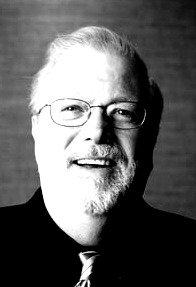Well, every once in a while you get one wrong. Or, at least not entirely right. Last week, with my deadline looming, I wrote that Democratic presidential nominee Kamala Harris and her vice-presidential pick, Minnesota Governor Tim Walz, were “presumably” making their way across rural South Georgia on their first campaign bus blitz since being nominated in Chicago a week earlier.
“Presuming” is always risky in the news business, even in column-writing as opposed to regular straight news reporting. A couple of weeks earlier, I had opined that sending “Coach Walz” on a trip into rural South Georgia during high school football season might pay some unusual dividends for the Democratic ticket.
Walz, as just about everybody knows by now, served as a social studies teacher and assistant football coach at Mankato West H.S. before entering politics. By all accounts, he played a key role in helping guide the Mankato West Scarlets from worst to first in just a few years in the late 1990s. His former players were effusive in their praise for the old coach turned congressman turned governor turned VP candidate.
Beyond his football chops, Walz appears to be the rarest of 21st century Democrats, a flannel-wearing pheasant hunter and fisherman who went to a state college and represented a historically Republican district in Congress where he rose to a senior position on the House Agriculture Committee. He’s not the kind of guy who will need a translator in Ty Ty, Enigma or Alamo.
The Democrats’ decision to make South Georgia the maiden voyage for both Walz and presidential nominee Kamala Harris sent a powerful signal that Team Blue was serious about fighting for the largely rural, sparsely populated parts of Georgia south of Macon.
As things worked out, however, what was originally billed as a “South Georgia” bus trip turned into a 48hour touch-and-go in coastal Georgia, where Harris and Walz managed to find the only two majority Democrat counties in the region – Chatham and Liberty. Darker red Georgia clay in such GOP climes as Brantley and Pierce counties went unplowed. It felt a little like a bait-and-switch.
To be fair, the logistics and security challenges involved in pulling off a political event for the sitting vice president of the United States in, say, Nahunta or Blackshear, would have been nightmarish, and the inevitably small crowds might draw unflattering press coverage from journalists dragged along on the trip.
That was the view of one recovering politician I polled who once represented the area: “I don’t think they did themselves any harm just going to Savannah and surrounds, and not going to, say, Vidalia,” he told me by email. “The Savannah TV market is huge and reaches all the areas they wanted to touch. In fact, small turnouts in small venues might’ve counted against them. I think they hit a sweet spot.”
But one political scribbler with a slightly different view put it this way: “I don’t know if it hurt them, since few in south Georgia probably expected to see them in their towns, but I think it was a big, missed opportunity. Savannah and Hinesville were already voting for her! Other places would have had the potential to move the needle and maybe give her a new sense of reality for folks outside of a screaming auditorium.”
And this from a veteran political hand: “He/they should have done Columbus, Albany, Macon, and Savannah. All the big regionals where they could have cut the margin. Even the rural with big numbers – Hancock, Peach… I would have sent (U.S. Senator Raphael) Warnock and Walz to get those votes. Quentin Fulks knows that.”
Fulks is the political wizard who engineered Warnock’s 2022 victory and now plays a key role in the Harris-Walz campaign.
What’s clear is that last week’s coastal drop-in can’t be a one-and-done in the Democrats’ bid for rural Georgia. It’s unlikely the campaign can justify devoting much more of Harris’s time to rural South Georgia, but Walz is a different story. Team him up with Senator (and former Ebenezer Baptist Church pastor) Warnock for a “coach and the preacher” road show that should be able to get a hearing with critical constituencies across the region.
They still won’t win more than a handful of rural counties south of Macon, but the Democratic ticket’s bid for South Georgia will force Republican presidential nominee Donald J. Trump to spend time and money defending territory he no doubt thought he had in the bag. And if he loses even a point or two to the Harris-Walz ticket south of the gnat line, that could well be enough to keep Georgia in the blue column in this year’s presidential race.
Presumably.
(Charles Hayslett is the author of the long-running troubleingodscountry. com blog. He is also the Scholar in Residence at the Center for Middle Georgia Studies at Middle Georgia State University. The views expressed in his columns are his own and are not necessarily those of the Center or the University. Distributed by the Georgia Trust for Local
News.)









